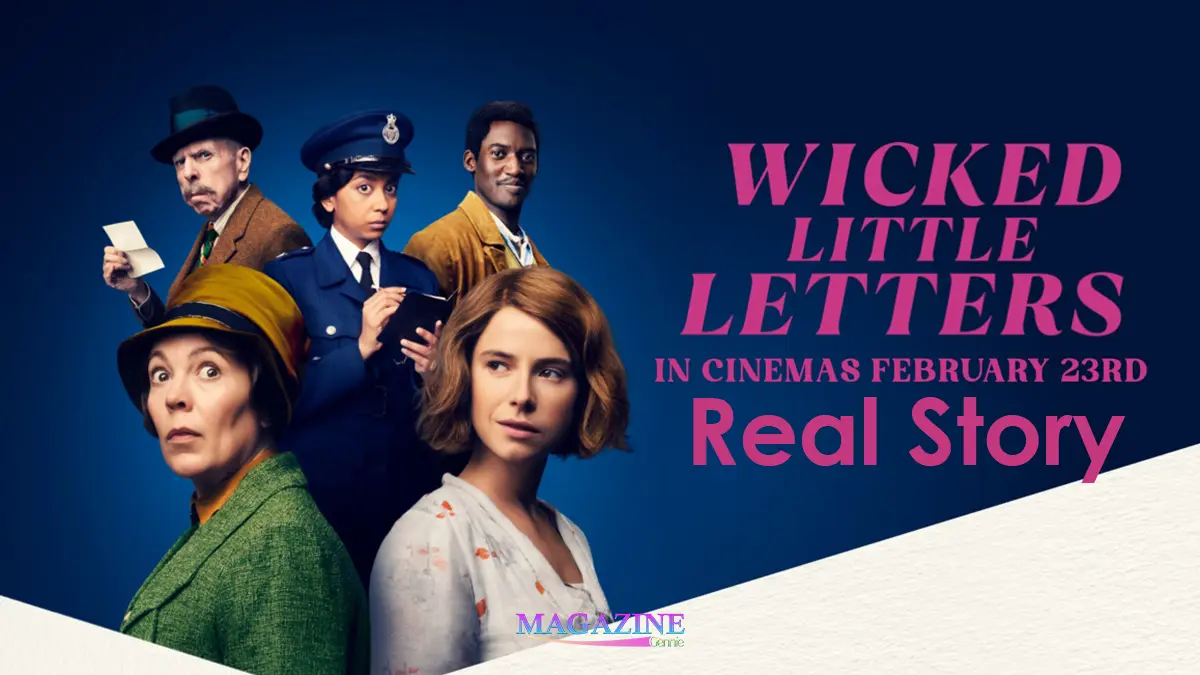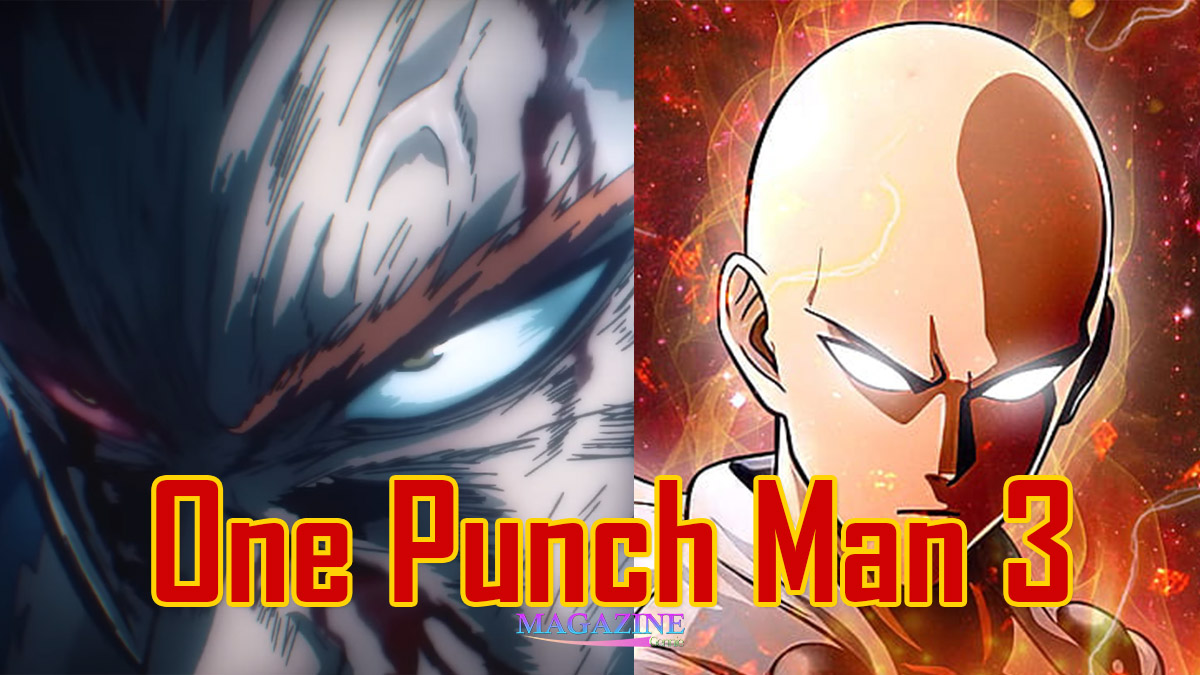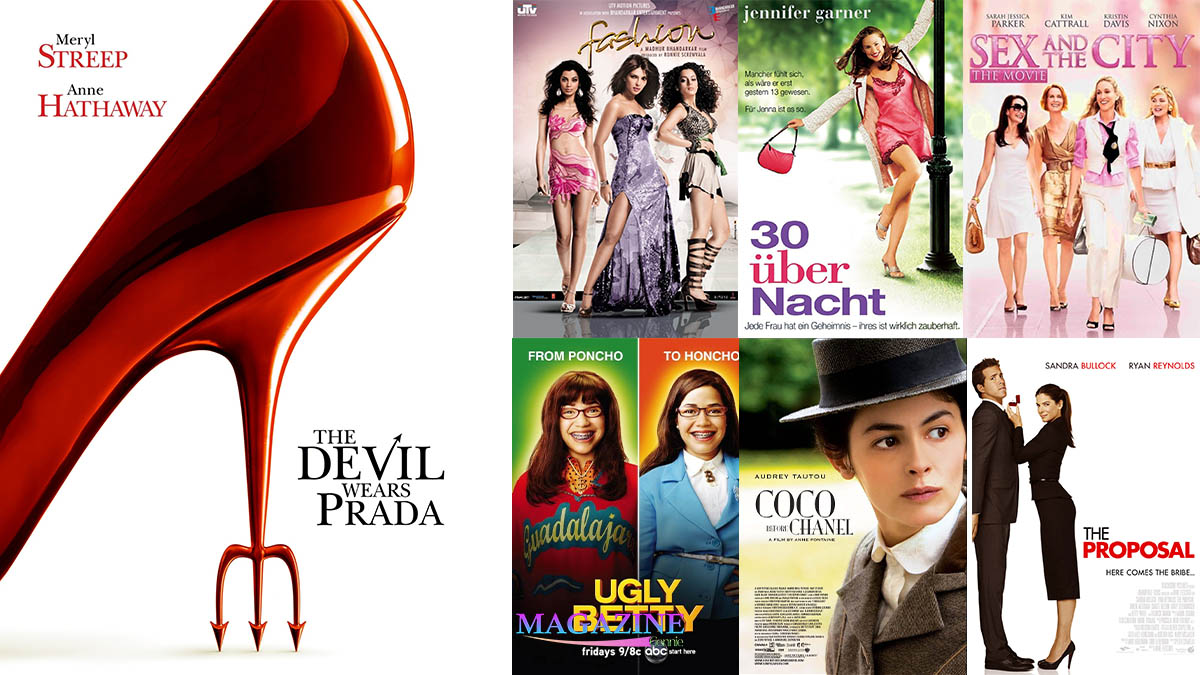Wicked Little Letters True Story
The true story behind “Wicked Little Letters” revolves around the scandal that unfolded in the 1920s in the English seaside town of Littlehampton, Sussex. The story follows the lives of neighbors Edith Swan and Rose Gooding, with Rose being suspected of sending obscene letters to conservative residents, including Edith. The scandal escalated as suspicions grew, leading to a trial and a national scandal that captivated the community and the press.
Edith Swan, a spinster caring for her family, and Rose Gooding, a single mother with a reputation for being loud and foul-mouthed, initially shared a friendship that soured over a dispute involving their communal garden. Edith, seeking revenge, began sending obscene letters in Rose’s name, escalating the conflict and leading to a series of outrageous accusations and insults.
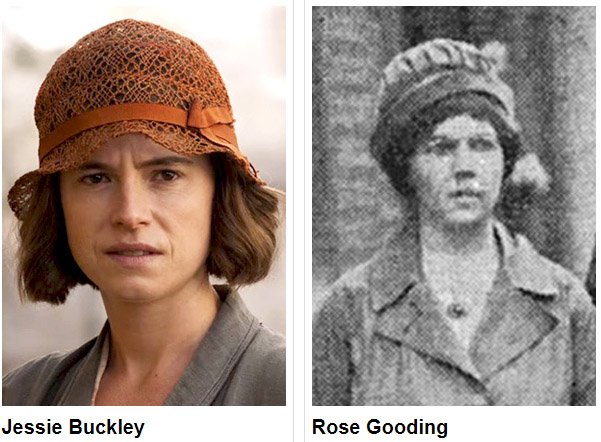
The investigation into the poison-pen letters was led by police officer Gladys Moss, the first female police officer in the area, who played a crucial role in uncovering the truth behind the scandal. Moss’s persistence and investigative skills ultimately led to the revelation that Edith was the true culprit behind the letters, clearing Rose’s name and bringing the case to a resolution.
The film adaptation of this true story, “Wicked Little Letters,” starring Olivia Colman and Jessie Buckley, captures the essence of the scandal and the complex dynamics between Edith and Rose. The movie delves into themes of rivalry, betrayal, and the impact of societal prejudices, offering a glimpse into a historical event that continues to intrigue audiences with its blend of comedy and drama.
Table of Contents
Wicked Little Letters Cast
The cast of Wicked Little Letters, a 2023 British black comedy mystery film directed by Thea Sharrock, includes:
- Olivia Colman as Edith Swan
- Jessie Buckley as Rose Gooding
- Anjana Vasan as PC Gladys Moss
- Timothy Spall as Edward Swan
- Joanna Scanlan as Ann
- Gemma Jones as Victoria Swan
- Malachi Kirby as Bill
- Lolly Adefope as Kate
- Eileen Atkins as Mabel
- Hugh Skinner as Constable Papperwick
- Paul Chahidi as Chief Constable Spedding
- Alisha Weir as Nancy Gooding
- Jason Watkins as Mr. Treading
- Richard Goulding as Mr. Scales
- Tim Key as Father Ambrose
- Jonny Sweet as Daily Mail Reporter
- Krishni Patel as Winnie Moss.
The film is based on a true story involving a scandal in a seaside town, where anonymous letters filled with profanities spark a local investigation.
Wicked Little Letters Characters
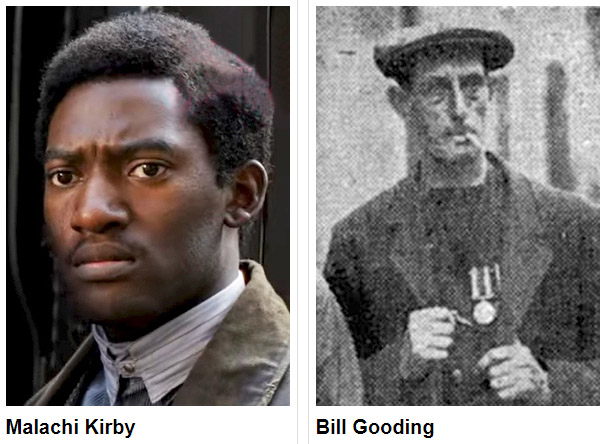
Edith Swan, a spinster living with her parents, and Rose Gooding, a single mother, initially shared a friendship that soured over a dispute. Edith, seeking revenge, began sending obscene letters in Rose’s name, sparking a chain of events that captivated the town.
See also : Indrani Mukerjea Netflix Review
Wicked Little Letters Plot
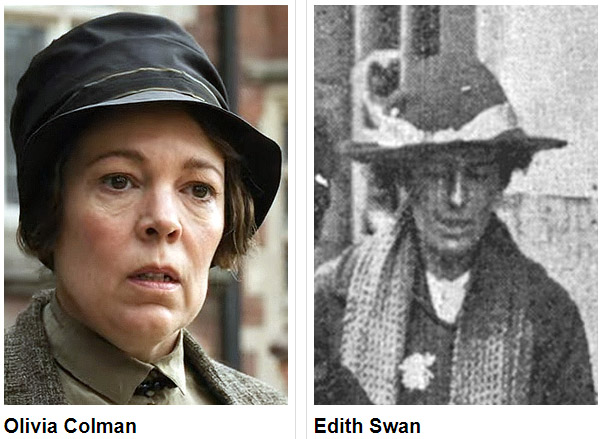
The conflict between Edith and Rose escalated as anonymous letters filled with profanity targeted residents, including Edith’s fiancé, Bertie Boxall. The tension between the two women, fueled by misunderstandings and societal prejudices, led to a trial and a web of deceit.
The Investigation and Trial
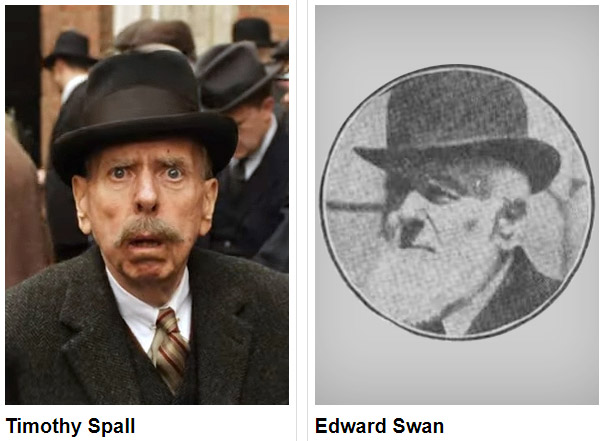
Police officer Gladys Moss played a pivotal role in uncovering the truth behind the poison-pen letters. Moss’s investigation revealed Edith’s culpability, leading to a trial where Edith was found guilty of sending the malicious letters. The case shed light on the impact of societal judgment and the complexities of female relationships in the early 20th century.
Cinematic Adaptation
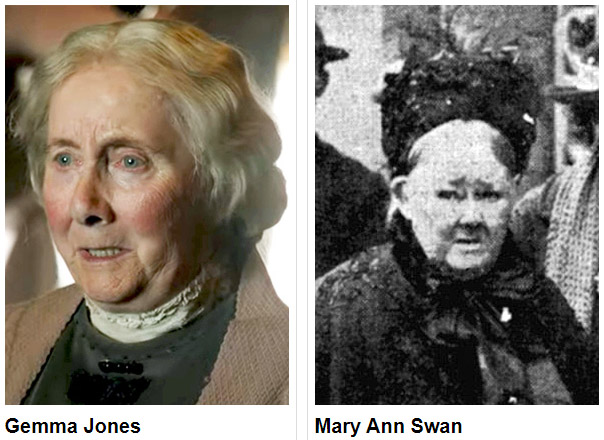
“Wicked Little Letters,” starring Olivia Colman and Jessie Buckley, brings this captivating true story to the big screen, portraying the dark and uncomfortable experience with depth and authenticity. The film delves into themes of betrayal, revenge, and the consequences of societal norms on women’s lives.
What happened to Rose Gooding?
Rose Gooding’s story, as depicted in Wicked Little Letters, is a fascinating tale of deception and scandal that unfolded in early 20th-century England.
Background
Rose Gooding moved to Littlehampton, Sussex, in 1918, having given birth to her daughter Dorothy out of wedlock three years prior to marrying her husband, Bill Gooding. Initially, Rose and her neighbor, Edith Swan, shared a friendly relationship, bonding over domestic activities. However, their friendship soured due to disputes over shared spaces and personal grievances, particularly concerning their communal garden.
The Scandal
The conflict escalated when Edith, feeling wronged, began a campaign of revenge against Rose. She started sending a series of obscene letters, falsely attributing them to Rose. These letters contained graphic insults and accusations, including claims that Rose had been unfaithful to her fiancé, Bert, who was serving overseas. This led to Bert calling off their engagement.
In September 1920, Rose was charged with criminal libel based on Edith’s claims. Despite the lack of concrete evidence linking her to the letters, Rose was convicted and sentenced to ten days in prison. However, the situation worsened when more letters emerged, leading to a second trial in 1921. This time, Rose was sentenced to a year in prison with hard labor, although she was released after serving four months.
Aftermath
The case against Rose began to unravel when police investigations revealed inconsistencies in Edith’s claims. Eventually, evidence emerged linking Edith to the letters, including handwriting samples. In 1923, after a series of trials, Edith was found guilty of sending the letters and was sentenced to 12 months in prison.
Rose Gooding’s life was significantly impacted by these events, and her story reflects the social dynamics and gender expectations of the time, particularly the harsh judgments faced by women who deviated from societal norms. The scandal not only tarnished her reputation but also highlighted the lengths to which individuals might go to settle personal scores in a small community.
Reviews of Wicked Little Letters
Wicked Little Letters is a film that combines dark humor with a true crime narrative, set in the 1920s in the quaint English village of Littlehampton. Directed by Thea Sharrock and featuring a stellar cast including Olivia Colman and Jessie Buckley, the film explores the chaos that ensues when a series of scandalous poison-pen letters begin circulating among the townsfolk.
Plot Overview
The story centers around Edith Swan (Colman), a conservative and pious woman, who becomes the target of a barrage of profane letters. These letters, filled with outrageous insults and vulgarities, are attributed to her neighbor, Rose Gooding (Buckley), an Irish immigrant with a free-spirited nature. As the narrative unfolds, Edith’s accusations lead to Rose being charged with the crime, prompting a deeper investigation into the motivations behind the letters and the societal pressures faced by women of that era.
Themes and Style
Wicked Little Letters cleverly juxtaposes humor with serious themes of misogyny and societal expectations. The film critiques the rigid norms of post-World War I England, where women were often relegated to submissive roles. The letters serve as a form of rebellion against these constraints, allowing the characters to express their frustrations in a society that stifles their voices. Critics note that while the film is filled with comedic elements, it also hints at a more profound psycho-sexual drama lurking beneath the surface, which could have been explored further.
Reception
Critics have had mixed reactions to the film. While many appreciate the performances of Colman and Buckley, some argue that the film does not fully capitalize on its intriguing premise. It is described as a “serviceable trifle” that could have embraced its naughtiness more fully, suggesting that the film occasionally shies away from the edginess that its subject matter invites. Others highlight the film’s ability to blend humor with a critique of societal norms, making it both entertaining and thought-provoking.
In summary, Wicked Little Letters offers a unique blend of comedy and social commentary, anchored by strong performances and a fascinating true story. While it may not delve as deeply into its darker themes as some viewers might hope, it remains a delightful exploration of female agency and societal constraints in a bygone era.
Conclusion
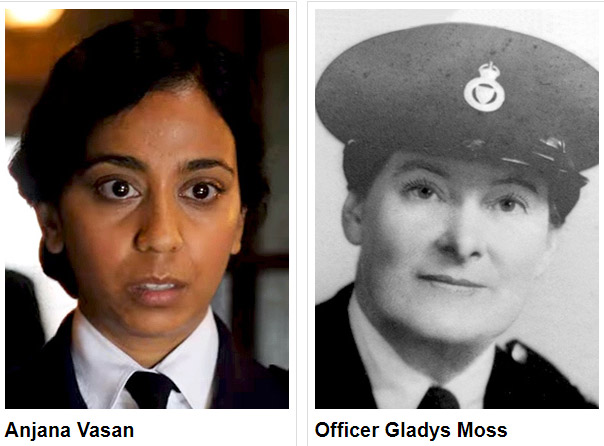
The true story behind “Wicked Little Letters” serves as a reminder of the power of words, the impact of misunderstandings, and the complexities of human relationships. Through the lens of history and cinema, this tale of scandal and intrigue continues to captivate audiences, offering a glimpse into a bygone era filled with dark secrets and unexpected twists.
.

